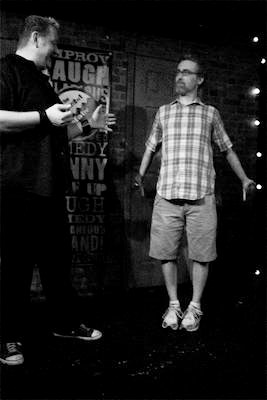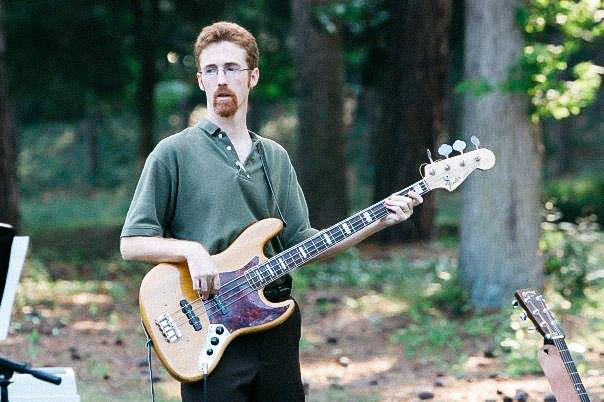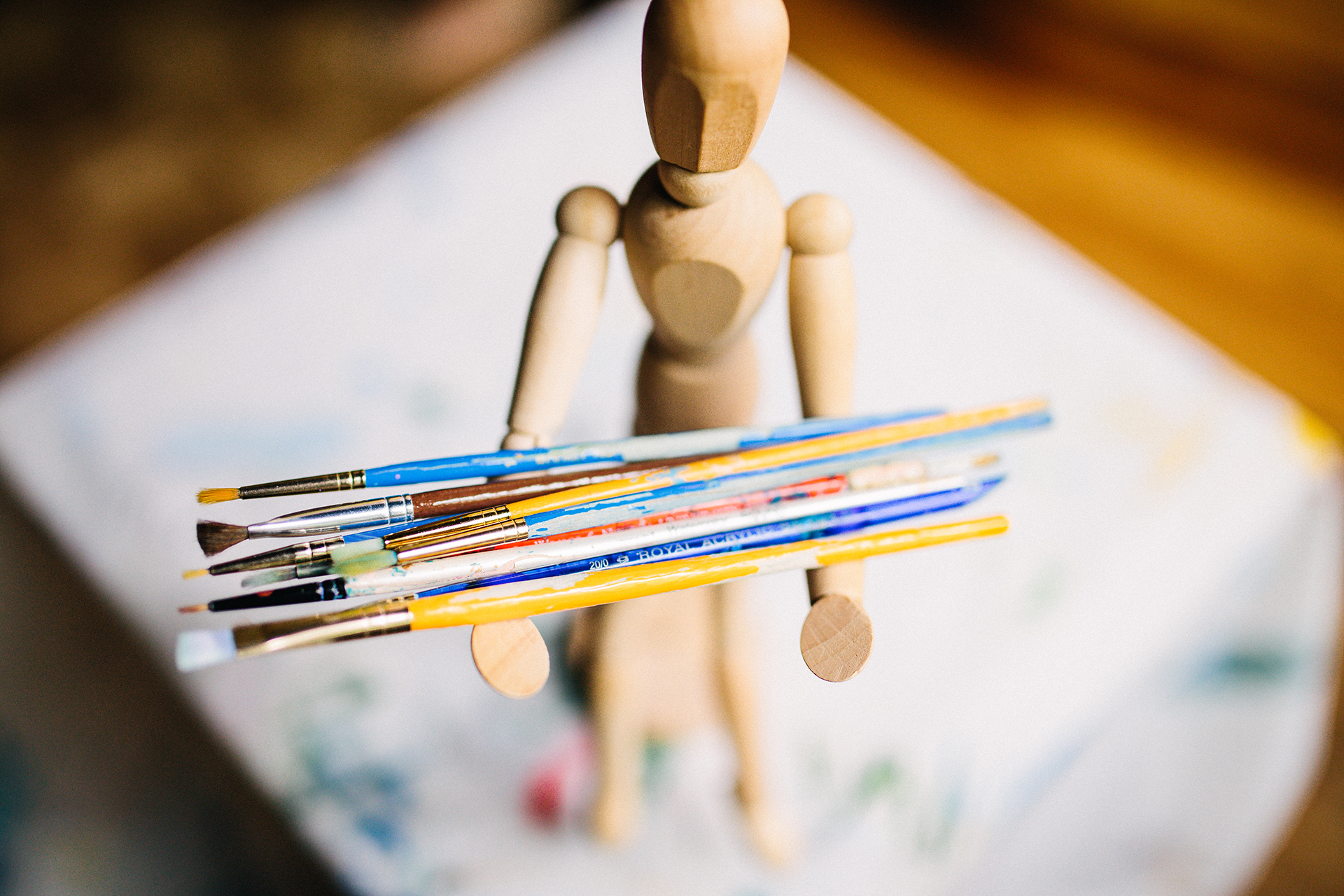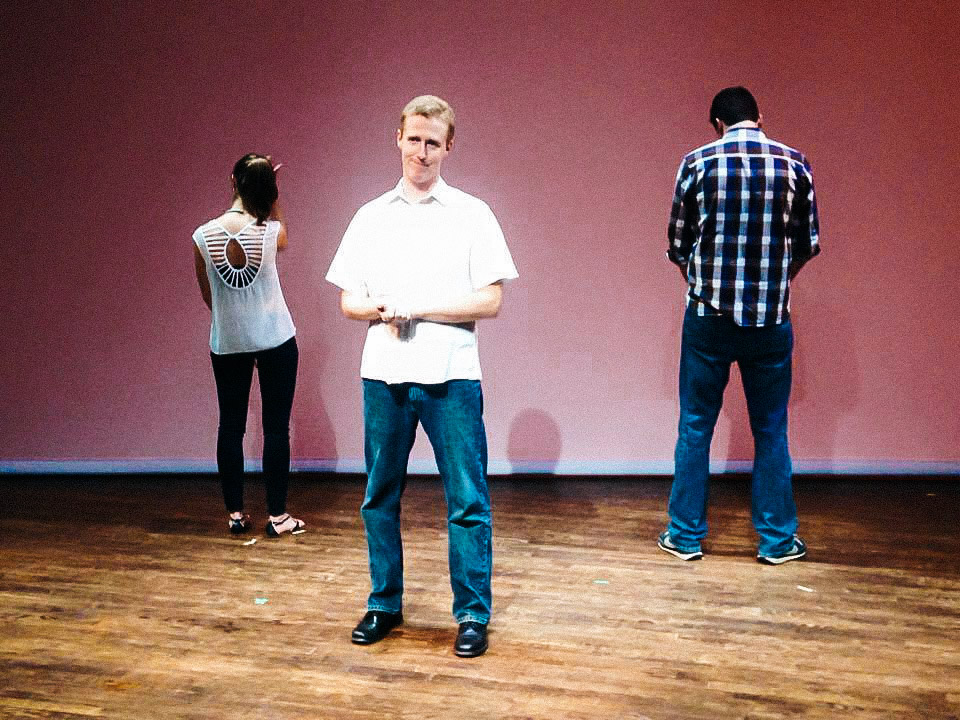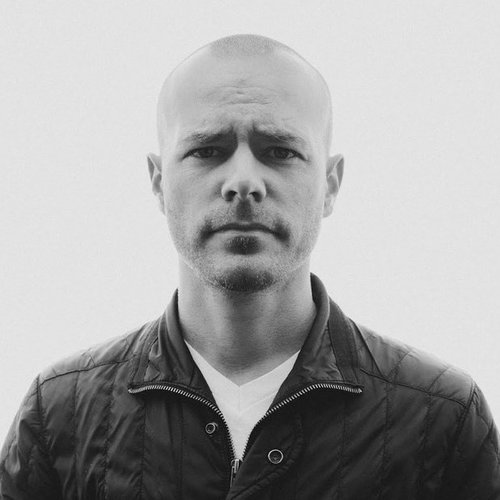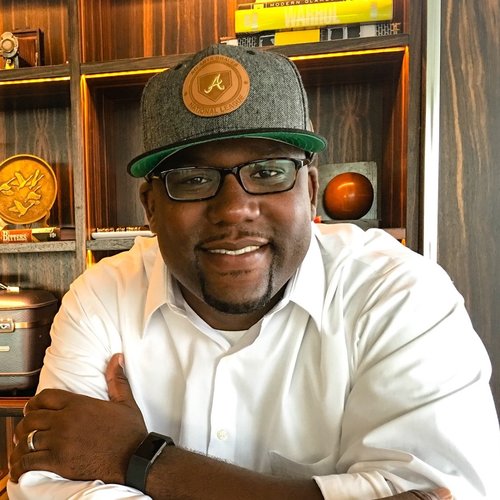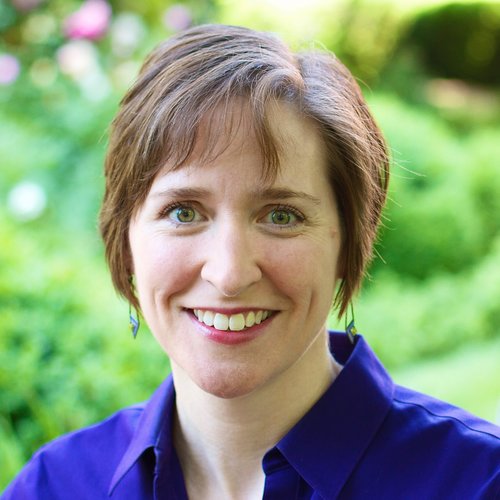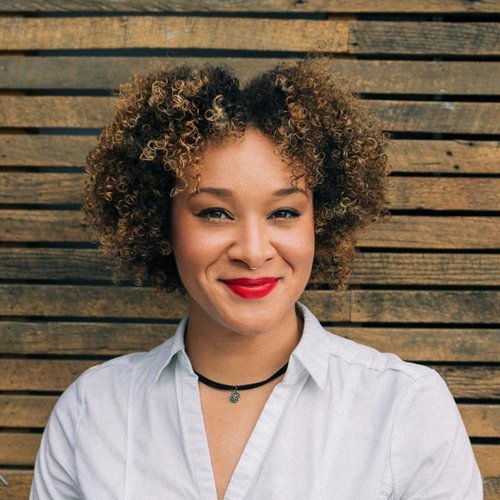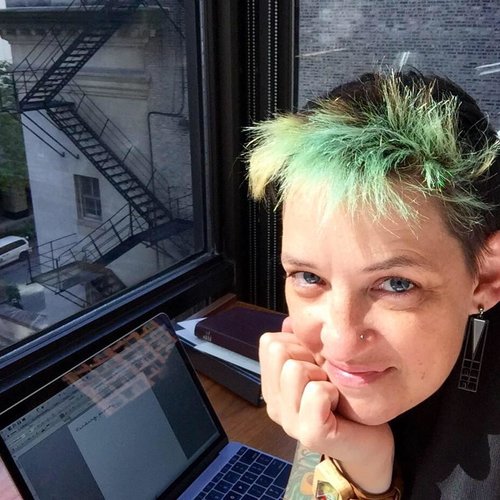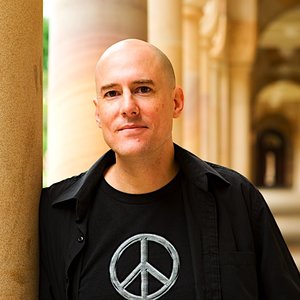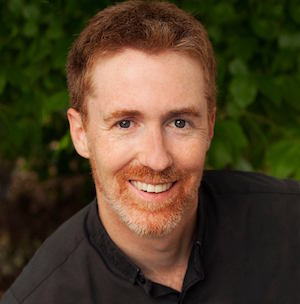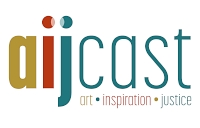"Yes, and . . ."—wholeheARTed guest, Rev. Marthame Sanders
As a team, we at Sanctified Art often find ourselves consciously—and subconsciously—thinking about the practical and big picture implications of the art we create. Our creative process often revolves around these questions: How will this art be used? How will it stir imagination, invite participation, and offer space to heal? How might what we create become life-giving for others?
These questions are rooted in a bigger, more philosophical question: What, exactly, does art do? There is no one answer, of course, but we can't deny that art does something. It affects us, even if we create it with no greater intentions or expectations.
This question also seems fundamental to the work of our wholeheARTed guest this week, Rev. Marthame Sanders. He shares about the formative role of improv in helping him live his life and faith led by the rule of "Yes, and . . ." In his new(ish) podcast, aijcast, he invites other artists into conversation to explore how they hope to create a more just world through what they create. Even in his most familiar form of creative expression, music, Marthame is reminded of what art always does: it calls us home to ourselves, making each of us an artist in our right.
Earlier this year, we were excited to sit down with Marthame for his podcast (listen to that episode here), and here we continue the conversation.
Read on below and catch up on our other wholeheARTed guests here.
SA: When did you first consider yourself an artist or creative person?
MS: In 2014, I spent the summer studying songwriting and improv comedy in Chicago. Up until that point, I had considered them nothing more than hobbies. What changed was that I began learning the permission to fail.
In music, I was invited to write songs without a thought for my imaginary audience. It was the perpetual judgment of half-baked work that kept the good work from ever emerging. In improv, we played games where the whole purpose was to fail (e.g. performing a scene that ended as soon as the letter “s” was used). In short, I discovered that there is relative safety in creative failures.
Even after these experiences, I still did not embrace “artist” as part of my identity. I used to joke, “I’m not a musician; I own instruments.” My friend Cinnamon Denise, herself a musician, challenged me on this quite directly: “You are a musician! It is part of who you are as a human being. Your heart is a rhythm. Your voice is an instrument. You can’t separate music from the human being.” It was after that conversation that I began adding the word “artist” to my bio.
SA: Tell us about the art you create or how you express yourself creatively.
MS: I really have three arts in which I find expression. Music is one; I self-released an album earlier this year under the name Marred Fame (it’s available to stream and/or buy wherever you do that). The release is a mix of songs nestled between grunge and acoustic, an excuse for me to behave as though music hit its creative peak in 1991.
My natural inclination toward audio has led me into podcasting lately, and I now produce a weekly podcast called aijcast. In it, I talk to other artists about their art, what it is that inspires them, and how they see their art making the world a more just place. I get to immerse myself in researching the artist’s world, join the artist in discovery through our conversation, and paint a soundscape that supplements the interview.
I also perform improv comedy. Oddly enough, it is in this frivolity that I most often anchor myself creatively. As much as I enjoy the performance itself, what I truly love about improv is the way it builds capacity for taking risks, trusting others, and refining healthy instincts. These are things I take not only into music and podcasting, but into the rest of my life.
“What I truly love about improv is the way it builds capacity for taking risks, trusting others, and refining healthy instincts. These are things I take not only into music and podcasting, but into the rest of my life.”
SA: What is your creative process like?
MS: I’m going to focus on improv here.
Improv is, oddly, not about being quick or funny. Instead, it’s about discovery. When the audience makes a suggestion, it is highly unlikely that it leads improvisers to the same idea—at least initially. Each player brings a world of experiences that shapes how they receive the suggestion. This leads to the dance.
The scene begins as an offer is made. It could be a statement, a stance, an action, etc. No matter what, you accept your partner’s offer. This is true even if that offer doesn’t fit with your own offer—in fact, that’s when it’s especially true. I was once in a scene that took place at Thanksgiving. It started with one player digging into a turkey (improv relies on pantomime, not props). Not seeing this, another player wheeled around with a turkey dinner and the words “Dinner’s ready!”—to which the first player cried out, “What have I been eating?” A third player tied it together: “Gotcha! That’s last year’s turkey!” The line got a big laugh. More importantly, it hinted at some of that family’s relationships.
Improv happens in the moment, yet there is a practice at work. Hundreds of games create muscle memory so that moments can happen naturally. In one such exercise, two people do an activity with their backs to each other. They then turn to see what the other is doing and then must justify why these activities are happening in the same space. One person might be brushing their teeth while another uses a computer. The computer user might say, “So the ADA website recommends two minutes.”
Moments like these feel almost mystical; and they can only happen when you’re open to discovery. And even then, you still might not stick the landing!
SA: What does fear look like for you and how does it show up in your creative process?
MS: Oh, man. Fear and improv are like an old married couple: you just assume they have always been together. It’s there as stage fright: I am about to walk into a room of strangers who are going to judge me and everything I say and do—heck, even the way I look—for the next two hours. I’m not going to be funny and everyone will hate me because I ruined their evening. I will end the night as a crumpled mass of self-loathing balled up in a corner somewhere.
SA: How do you push beyond fear and self-doubt when they emerge during the creative process?
MS: This is why the practice of improv matters so much. This is why you do those exercises and stupid warm up games: they get those honed instincts fired up and into the game.
My favorite little trick is a simple move I learned from a fellow improviser. It has made all the difference—not only on stage, but in life. When in those moments of fear and self-doubt, I stand, arms at my side, with wrists turned forwards. It is, simultaneously, a position of openness and extreme vulnerability. And . . . it works! It works because it is a physical embodiment of a philosophical and theological attitude. Before my mind can grapple with whatever issue is at hand, the body has already decided to approach it openly and vulnerably.
SA: How is your creativity connected to your faith?
MS: Improv has given me an enormous gift: a ridiculously fun way to embody practices and beliefs I hold dear, and to do so in ways that enrich my life both on and off the stage.
In improv, the maxim of “Yes, and” is a bedrock. That is, whatever my fellow player offers, I will acknowledge its truth and then add to it. It’s not automatic agreement—that’s co-dependence, not trust. Rather, the goal is to say “yes” to the truth of the offer. For example, a player hands me a baby (again, pantomiming). If I change it to a bowling ball, I have denied the truth of the scene and undercut any trust the player might have in me. On the other hand, if I accept the baby as fact, I can add a detail that deepens the scene: it’s hideous, speaks in complete sentences, is named Marthame (What kind of a name is that?). Improv is a process that requires mutual trust, leading toward collaborative discovery and, eventually, beautiful risks.
There is an elegant parallel in faith. Love of neighbor is our “yes”—not a reflexive agreement with whatever they say and do, but a deeper affirmation of the image of God within them. The “and” implies dynamic movement: we will both be changed by the encounter. Even if there is conflict—perhaps I am calling out a goodness they don’t want to see in themselves, or I am revealing to them a way in which they have injured another but won’t acknowledge—the initial “yes” of God’s love and beauty is deepened. And when two people seek to live this kind of mutual reality together, they will build trust, they will discover, they will take faithful risks together.
SA: How does creativity/art lead you to wholeness?
MS: I have joked that Presbyterians could have a three-day conference on liturgical dance and never leave their seats. We love to talk about stuff. But we know that the fastest path to our transformation is not words, but actions. The same is true of improv. It is a full-on mind/body activity.
As part of a class, I once spent a full three hours improvising in gibberish and pantomime. It began with the teacher “teaching” us how (not) to speak with a kind of absurd version of non-language immersion. We moved from there to simple scenes, like a taxi picking up a fare and going to the drive thru window. Not a single intelligible word was uttered the whole time. And yet, we understood every nuance of every scene we made that day. Not only that, it was the funniest we had been up to that point.
That’s when it hit me: words don’t matter a whole lot. And I’m a preacher. And a podcaster. It was a challenging realization, but one that ultimately became a path to wholeness. I am very comfortable staying in my head and using words from sun up to sun down. I am now on the path of recognizing how much the process of transformation relies on the act of doing.
If I am to follow Jesus, whom I believe to be God in bodily form, then words alone will never be enough—in fact, they don’t matter much at all. Faith becomes real, and I am led to wholeness, when it is embodied.
“That’s when it hit me: words don’t matter a whole lot. . . . I am now on the path of recognizing how much the process of transformation relies on the act of doing.”
A handful of the guests featured on aijcast. Top (from left to right): Derek Webb, Terence Lester, MaryAnn McKibben Dana, Dawn Axam. Bottom: Stephanie Eley, Shawna Bowman, David Lamotte, Ralph Watkins.
Rev. Marthame Sanders
Rev. Marthame Sanders is an Atlanta-based dad, artist, and pastor. A graduate of Yale University and the University of Chicago, Marthame has served in ministry as international mission staff, youth director, and solo pastor. His podcast, aijcast, is his latest project, seeking to unite his passions for faith, art, and justice. Marthame and his wife, Elizabeth, keep busy parenting their two sons, ages 7 and 11, who are awesome but—let’s be honest—kind of immature.

